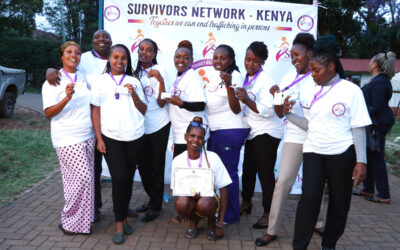The world’s largest consulting firm has teamed up with Free the Slaves to tackle one of history’s greatest challenges: the eradication of slavery.
Deloitte has been volunteering its staffers this year to take stock of the anti-slavery movement and recommend ways for it to be more effective.
The result is a new analysis called the “Freedom Ecosystem” report, released today. The study examines how an ecosystem of organizations—from the private sector, civil society, government, academia, the funding community and the broader public—is working to eradicate slavery, and how they could amplify their efforts through greater collaboration.
Through a series of interviews with experts, extensive secondary research and analysis of successful collective-action examples, the report authors have identified three elements that allies should apply in collaborating for increased progress:
- Align on common goals
- Build mutual ownership
- Create scalable solutions
Incorporating these elements of collective action can allow allies from across sectors to establish an infrastructure to help reinforce future change as well as address some current challenges such as a standard definition for human trafficking, gaps in and sharing of data, limited resources and policy. They will include:
- Create a professional association for joint learning
- Mobilize resources through strategic alliances
- Unite around a common policy agenda
“In 2011, we began work on an analytics project that demonstrated how the power of data can help eradicate human trafficking and slavery,” said Sean Morris, principal, Deloitte Consulting LLP, and federal human capital leader who coauthored the report. “The project results inspired us to get more involved and work with organizations such as Free the Slaves in order to figure out what is really driving slavery and ways to eradicate those drivers.”
“Since its inception in 2000, Free the Slaves has recognized that ending modern day slavery will require a comprehensive approach involving all sectors of society,” said Free the Slaves Executive Director Maurice Middleberg. “This report provides compelling evidence for the Free the Slaves ethos, which is to embrace partnership and collective action as essential strategies for eradicating slavery.”
Our thanks to the team at Deloitte for their diligence and dedication to helping the anti-slavery movement!
Read the full report here.



